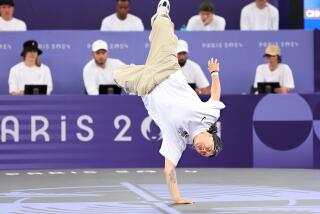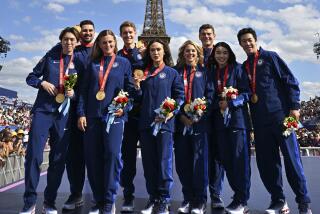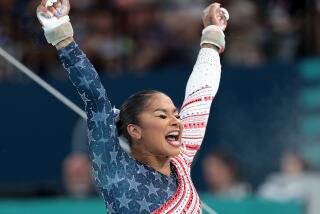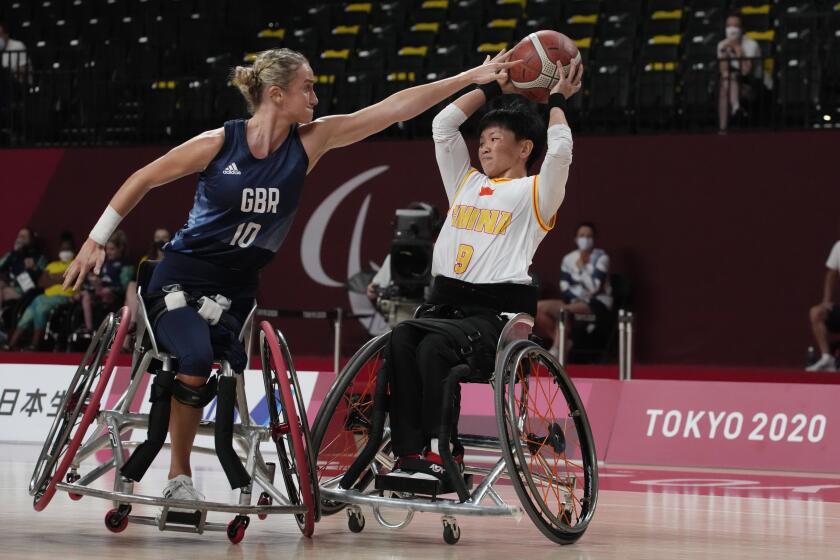Column: The promising future of U.S. women’s figure skating hasn’t come to fruition
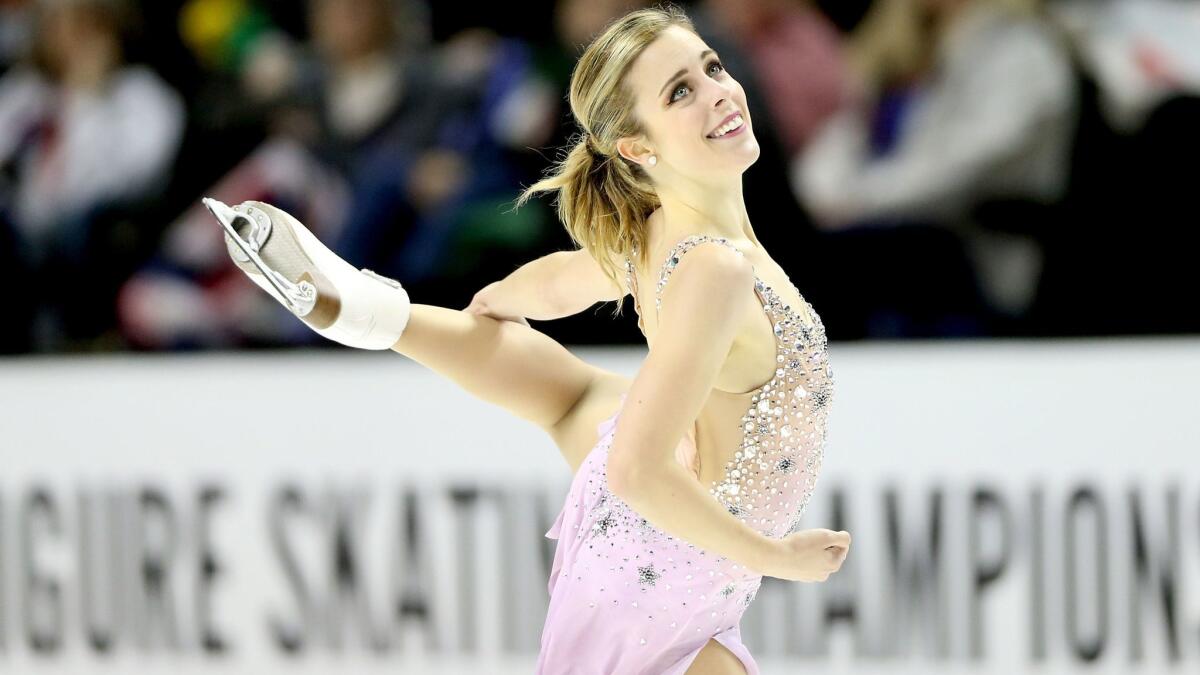
Reporting from SAN JOSE — The future looked exceptionally bright for American women’s figure skating in 2014 after Gracie Gold, Ashley Wagner and Polina Edmunds finished fourth, seventh and ninth, respectively, at the Sochi Olympics. Four years later, with the Pyeongchang Games a few weeks away, that picture is dramatically different.
Gold had erratic results and has missed this season to undergo treatment for depression, anxiety and an eating disorder. Wagner has struggled since she won a silver medal at the 2016 World Championships and complained about the judging after she finished fourth here at the U.S. championships. At least she finished: Edmunds, now 19 and plagued by chronic leg injuries, withdrew after performing her short program because of intense pain.
“We thought in 2018 we’d be in amazing shape. But life and puberty got in the way of that,” said Samuel Auxier, president of U.S. Figure Skating, the sport’s national governing body. “Our support is with Gracie and what she’s going through. She was a great skater. I think she would have been a top medal contender here had everything gone right, but stuff happens. Life happens.”
Yet, some things haven’t changed. Pairs remains a glaring weakness for the U.S., with husband and wife Alexa Scimeca-Knierim and Chris Knierim winning the national title and an Olympic berth despite sloppy side-by-side jumps that elite rivals would scorn. “We’re working on our pairs strategy longer term,” Auxier said.
But ice dance remains a strength, and a U.S. duo could win a dance medal for the fourth straight Olympics. Madison Hubbell and Zachary Donohue on Sunday won their first U.S. title by defeating defending champions Maia and Alex Shibutani, who were third at last year’s world championships and third at the Grand Prix Final. Hubbell and Donohue (197.12 points) will go to Pyeongchang, with the Shibutanis (196.93) and Madison Chock and Evan Bates (196.60).
The team event is another medal source for the U.S., which won bronze behind Russia and Canada in the competition’s debut at Sochi. “We think we have a good shot at, at least, a medal there, if not the gold or silver,” Auxier said.
No American man or woman won a singles medal at Sochi, and that might happen again in Pyeongchang. The best hope is 18-year-old Nathan Chen, who won his second straight U.S. men’s title on Saturday with a five-quadruple-jump long program and on Sunday was nominated to the Olympic team. Third-place finisher Vincent Zhao, a 17-year-old who’s a spectacular jumper but lacks artistry, also made the team. However, runner-up Ross Miner was skipped in favor of fourth-place finisher Adam Rippon despite Miner’s sparkling long program and Rippon’s error-strewn routine.
Surprisingly, sixth-place finisher Jason Brown was named the first Olympic alternate and Miner the second alternate. Miner’s coach, Mark Mitchell, endured a similar snub in 1992 after he was third at the U.S. championships but was left off the Albertville team in favor of Todd Eldredge, who had missed the U.S. competition. Eldredge was 10th at the Olympics.
“We are looking for the athletes that consistently performed across the Grand Prixes, internationally, who can get the scores and who are most likely to perform well at the Olympics,” Auxier said, praising Miner’s “amazing, lights-out performance” but deeming it insufficient reason to give Miner an Olympic berth. “We weren’t sure if we put him out at the Olympics he would perform to the extent that he was a possibility for a medal.”
Chen is undefeated this season, including a three-point victory over Olympic and world champion Yuzuru Hanyu of Japan at the Moscow Grand Prix event in October. Zhao will basically be along for the ride to gain experience that could help him in the 2022 Beijing Games if life doesn’t get in the way for him, too. Rippon relies on artistry more than big tricks, making him a fan favorite but probably not a medalist in a sport infatuated with big-score quadruple jumps.
U.S. women’s champion Bradie Tennell, 19, is admirably consistent with her jumps but lacks the emotional depth to earn high scores in the program components, the subjective part of the judging. Mirai Nagasu earned her second-place finish and her second Olympic spot eight years after she finished fourth at Vancouver as a carefree 16-year-old. Her arsenal includes the triple axel, a score-boosting, 3 ½-revolution jump that few women can land. Karen Chen, the 2017 U.S champion, probably won’t be in the Olympic medal mix.
After the women’s event had finished here, Auxier sat beside Tennell, Nagasu and Chen to praise their efforts. He also brought up the flawed triple axel Nagasu had performed. “I think we’ll work on getting that clean for the Olympics,” he said, as she smiled politely. “We saw that she can do it very well in practice and hopefully can get that clean.”
It sounded like a command. And it could be decisive in adding team or individual hardware to what likely will be a meager U.S. skating medal tally at Pyeongchang.
Twitter: @helenenothelen
More to Read
Go beyond the scoreboard
Get the latest on L.A.'s teams in the daily Sports Report newsletter.
You may occasionally receive promotional content from the Los Angeles Times.
